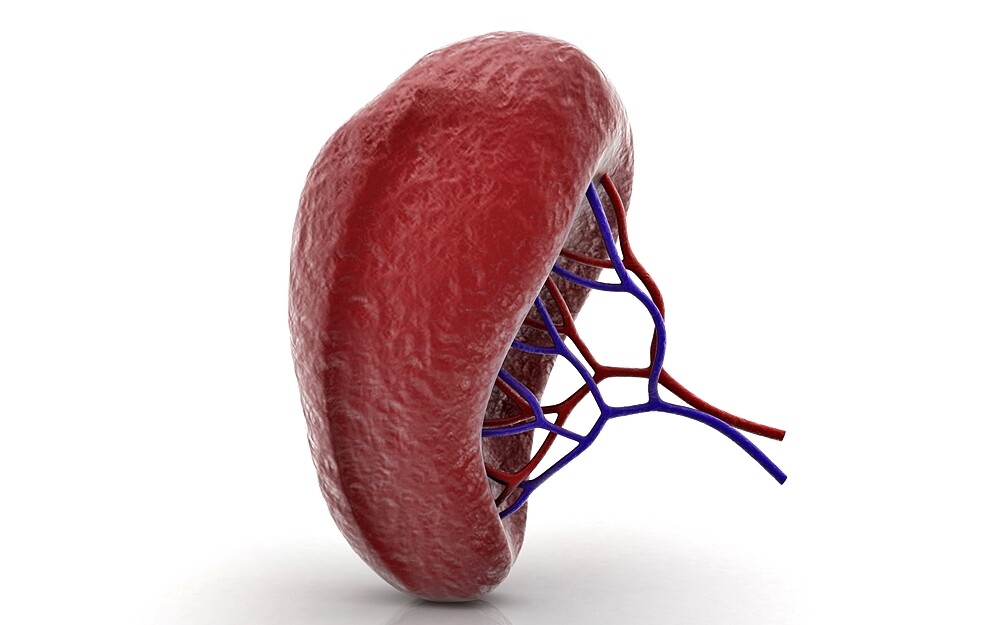Although the spleen is a very small organ, it performs important tasks in the body. You can find out here what is important for a life without spleen.
Function of the spleen
The spleen is an organ that weighs only 150 grams and is located behind the stomach. Since the spleen is important for our body, doctors try to preserve the organ as long as possible. The spleen essentially fulfils two functions in our body:
- Defence against bacteria (pathogens)
- Filtering of blood (old red blood cells)
Consequences of removal
- After a splenectomy, patients are more susceptible to infections caused by bacteria. Since the spleen fights off such diseases, some infections can be much more dangerous for the body in people without a spleen.
- In particular, sepsis, i.e. blood poisoning, can occur when the immune system no longer functions after an infection. Sepsis leads to death in about 50 percent of affected patients, while limbs often have to be amputated in survivors. However, this can be prevented with preventive vaccinations (see next section).
- Similarly, in humans after a splenectomy, an increase in the number of blood platelets (thrombocytes) in the blood can occur, leading to an increased risk of thrombosis.
Vaccinations as protection
Medicine considers three vaccinations after a splenectomy to be absolutely necessary:
- Pneumococci
- Meningococcus
- Haemophilus influenzaeType b
- Additionally the flu vaccination is recommended
Pneumococcus is considered the most urgent of the three vaccinations for patients. Infections with bacteria caused by pneumococci are the main cause of sepsis. The vaccinations must be refreshed every three to five years, as they do not provide long-term protection against disease.
Consult a doctor
- Even though vaccinations provide good protection against bacteria such as pneumococcus, they do not protect the body with absolute guarantee. Patients without a spleen should therefore contact doctors immediately if an infection occurs. Rapid action is also required in the event of an animal bite, as there is also a risk of sepsis.
- Since doctors are not available around the clock, it makes sense to have an emergency antibiotic prescribed. If, for example, an infection should occur during a journey and no doctor is available, the antibiotic can protect you from serious complications. However, it is not yet clear whether an antibiotic can also be used for prevention.

